Oral Microbiology Important Notes
1. Dental Plaque Consists Of
- Bacteria
- Epithelial cells
- Macrophage
- Leucocytes
Oral Microbiology Notes for BDS Students
2. Factors Producing Dental Caries
- Host – structure of tooth and nature of saliva
- Diet – carbohydrate-rich diet
- Time-repeated ingestion of carbohydrates at short intervals
- Microbial flora – Mainly Streptococcus mutans
Read And Learn More: Microbiology Question and Answers
Oral Microbiology Long Essays
Question 1. Discuss normal oral flora. What is the pathogenesis of dental plaque formation?
Answer:
Normal Oral Flora:
- The normal resident oral flora occupies available colonization sites which makes it more difficult for other micro-organisms to become established.
- At birth, the oral cavity is usually sterile
- But within a few hours first streptococci gets established, followed by other species.
- Later the oral cavity becomes a mixture of bacteria, fungi, protozoa, and viruses.
- With the eruption of teeth, these organisms get colonized.
- Normal oral flora contains the following microorganisms
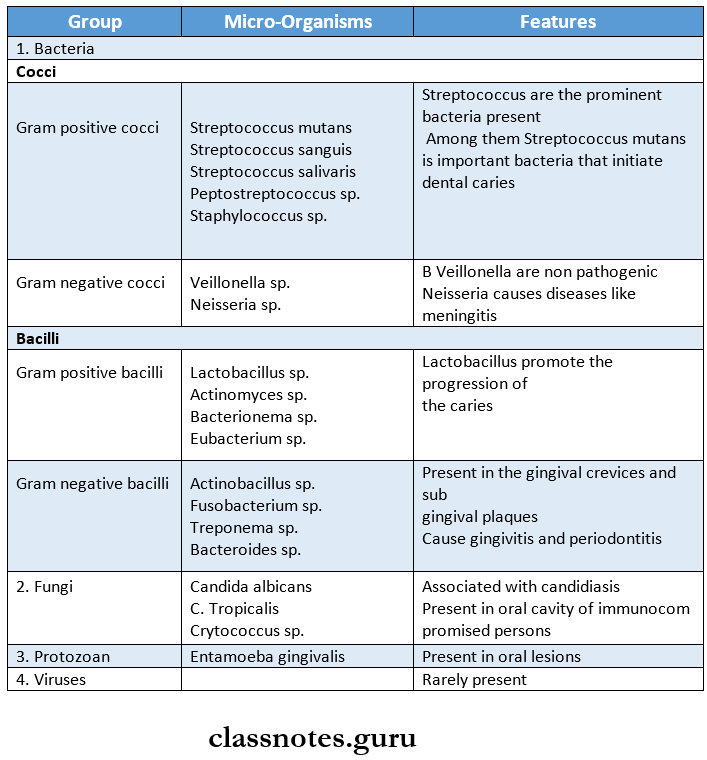
Dental Plaque Formation:
- Initially, oral bacteria, pellicle, and dietary sucrose are required
- Pellicle contains salivary glycoprotein while bacteria produce adhesives like glucan from dietary sucrose
- The first pellicle through its glycoprotein gets adsorbed to the enamel surface and forms a membranous film
- Next, the glucan produced by the bacteria helps in binding the bacteria to the pellicle
- As this process continues more and more oral bacteria are adsorbed on the tooth surface
- As a result of it, a layer called dental plaque is formed
- This later gets calcified to form calculus
Medical Microbiology Oral Infections Essay
Oral Microbiology Short Essays
Question 1. Dental plaque
Answer:
Dental plaque is a soft non mineralized deposit of bacteria present on the tooth surface and other hard surfaces of the oral cavity
Dental plaque Classification:
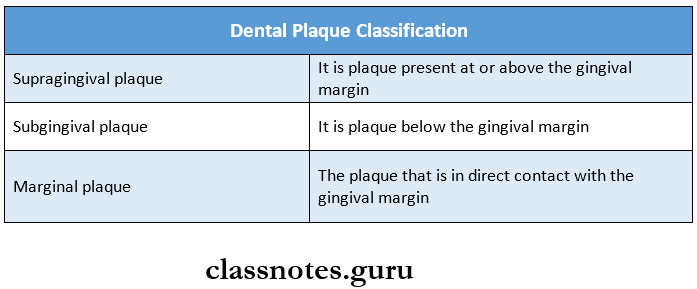
Dental Plaque Composition:
- Dental plaque consists of
- Bacteria
- Epithelial cells
- Macrophages
- Leucocytes
Dental plaque Effects:
- Calculus formation
- Dental caries
- Periodontal diseases
Question 2. Dental caries
Answer:
- Dental caries is an infectious, microbiologic disease of the teeth that results in localized dissolution and destruction of the calcified tissues of the teeth.
- It leads to the weakening of tooth structure, cavity formation, and, eventual loss of tooth
Oral Microbiology Viva Voce Questions
Dental Caries Etiology:
- Four factors interact to produce caries
- They are as follows:
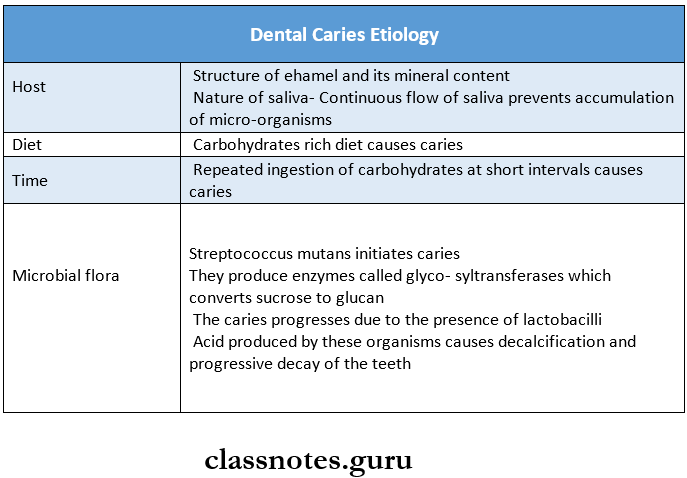
Prevention of Dental Caries:
Dental caries can be prevented by
- Maintenance of good oral hygiene
- By use of antimicrobials
- Proper brushing
- Flossing
- By scaling at least once in 6 months
- Control of dietary carbohydrate intake
- Incorporating fluoride in drinking water
- This increases resistance to dental caries.
Oral Microbiology Short Essay Questions and Answers
Question 3. Periodontal infection
Answer:
- Periodontal infections include diseases of the gingiva, periodontal ligease suggest focus keyphrases and meta descprtion
- ament, cementum, and alveolar bone
- Initially, the organisms affect the gingiva causing gingivitis
- Later it progresses to deeper tissues leading to progressive tooth loss
Periodontal Infection Etiology:
- Periodontal microflora, intrinsic factors, and extrinsic factors cause periodontal diseases
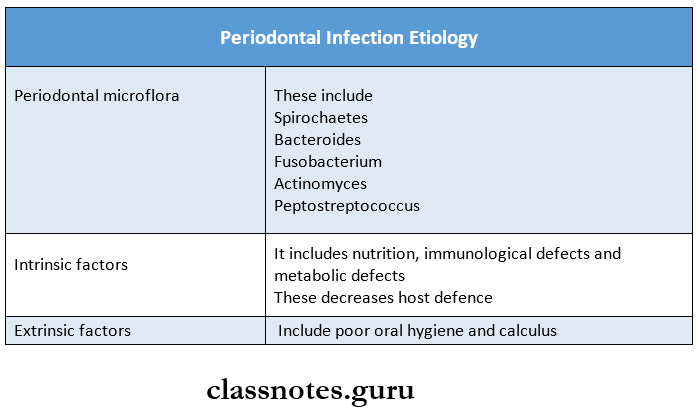
Periodontal Diseases:
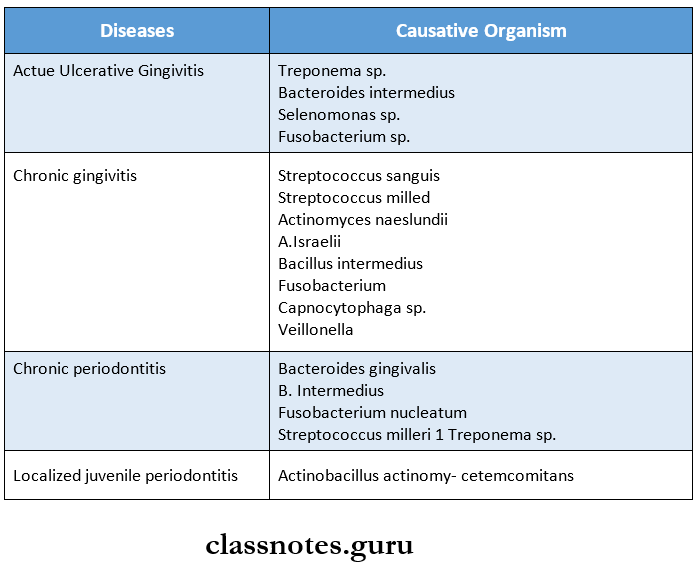
Oral Microbiology Short Question And Answers
Question 1. Microbiology or bacteria causing dental caries
Answer:
Bacteria that cause dental caries are
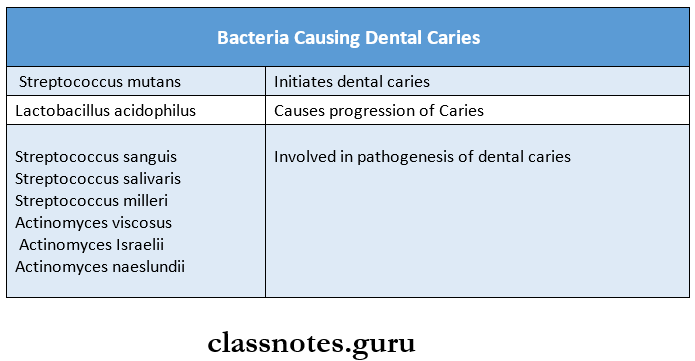
Question 2. Normal flora of the respiratory tract
Answer:
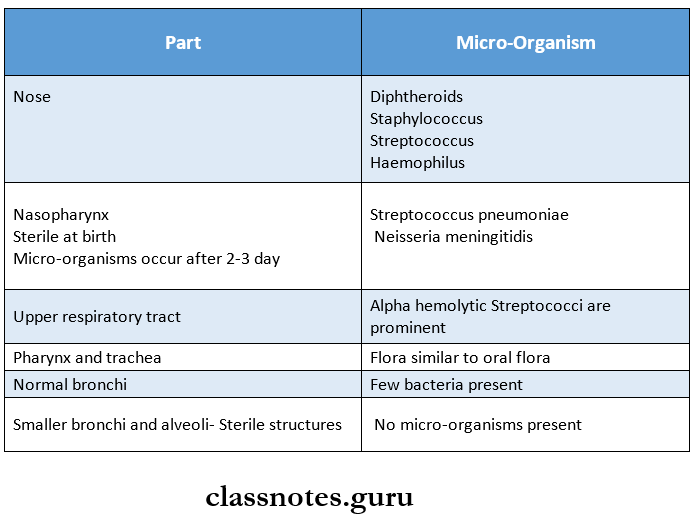
Oral Microbiology Long Answer Type Questions
Question 3. Name the micro-organisms causing a periapical abscess
Answer:
Microorganisms causing periapical abscesses are:
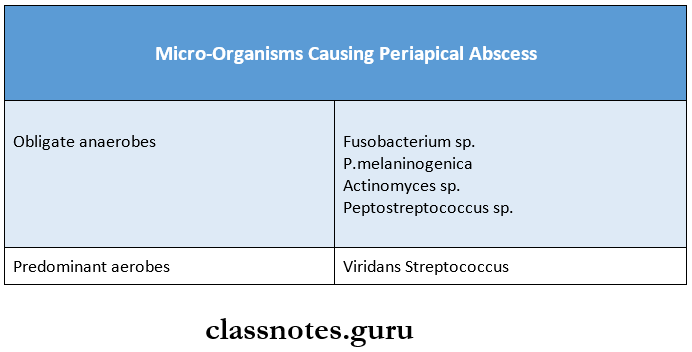
Question 4. Oral antiseptics
Answer:
- Oral antiseptics reused to keep the commensal bacterial flora of the oral cavity clean
- Some of them act as a deodorant
Oral Antiseptics Example:
- Thymol
- Menthol
- Eugenol
- Benzoic acid
- Boric acid
- Calcium
- Magnesium peroxide.
